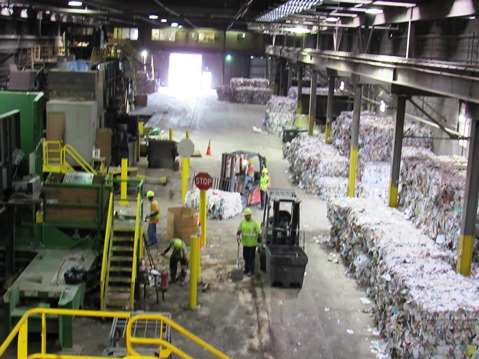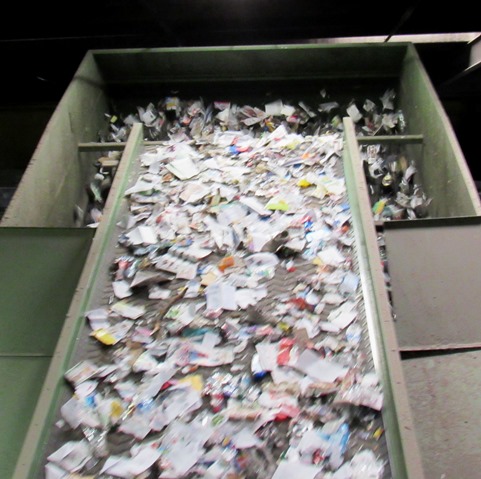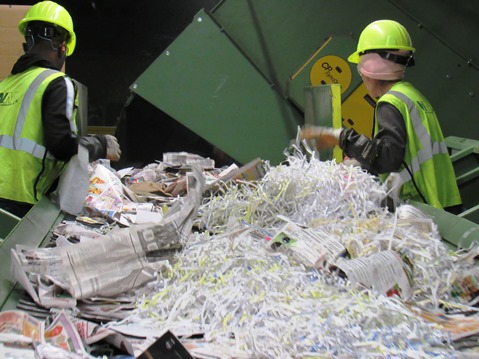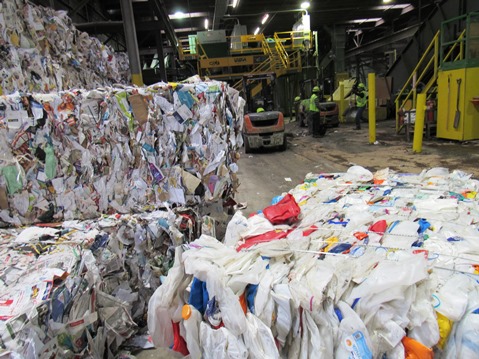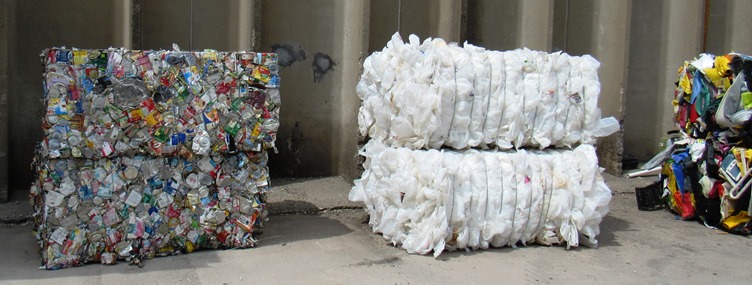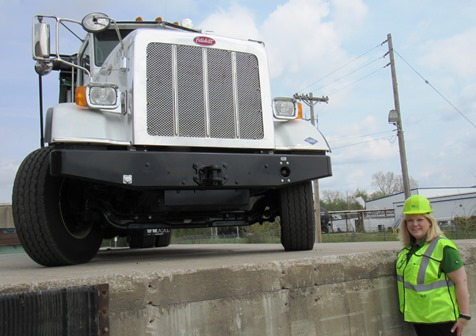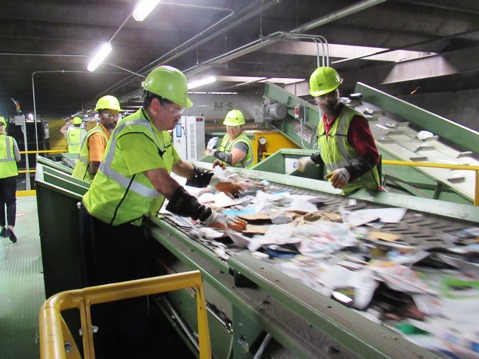
Hard hats were in fashion on Thursday on a tour of the Waste Management recycling facility on South 88th Street.
Inside the recycling facility, old newspapers, aluminum cans and plastic milk jugs made their way down one of several conveyor belts, on their way to being sorted and gathered into bundles, and ready to be shipped off to a plant that will turn them into newspapers, tissues, new metal parts, aluminum cans and more.
According to company officials, Waste Management has transformed its Wyandotte County recycling facility and its trash trucks in an effort to be more environmentally friendly.
At an open house held on Thursday to call attention to its environmental efforts near Earth Day, company officials highlighted recycling at the Waste Management Material Recovery Facility at 2441 S. 88th St., Kansas City, Kansas.
About $30 million has been invested into upgrading recycling facilities, CNG trucks and equipment here, according to Michael J. Watson, area vice president for Waste Management.
He said processing equipment will make recycling safer and allow Waste Management to process more materials more quickly.
At the recycling plant, which opened in 1995, there are magnets which pick up steel items from a conveyor belt full of metal products, separating the steel and tin from the aluminum cans. Paper items of all kinds ride up another conveyor belt where the lighter papers become airborne in a chute. Items are separated and drop into the correct bin underneath.
People are still required to look over the items on the conveyor belts before they go to their final bundle, and the workers separate anything that doesn’t belong in that line into bins marked with labels such as “containers” or “aluminum.” They take out anything that can’t be recycled – such as a pair of shoes on the conveyor belt today – or that is contaminated. About 85 people work at the plant, according to company officials.
New equipment that includes optic sorting systems and screens has been installed recently at the plant.
The recycling plant, opened in 1995, is a 70,000-square-foot building where items that are recycled are separated into groups in order to be shipped off for recycling, according to officials. If residents put items such as newspapers, bottles and cans into a green recycling bin and set it out at their curb, it should end up at this recycling facility. Residents are reminded not to send them any rigid plastics, no garden hoses, and no auto parts.
The plant processes about 70,000 to 80,000 tons of recyclables a year, according to officials.
There are stacks of bundled paper in the recycling facility currently, waiting to be taken to their next location. The company typically receives about $60 to $80 per ton currently for recycled newspapers, which doesn’t leave much profit, according to a company official.
Out on the road, there are more efforts to save energy. The company is increasing the number of trucks that run on compressed natural gas from the current 77 to close to 100 by the end of the year, according to Lisa Disbrow, area senior manager for Waste Management. New CNG trash trucks will have almost no emissions, she added.
She said methane gas is being produced at the Johnson County landfill, and can be used to power the trash trucks.
The CNG trucks will save about 8,000 gallons of diesel fuel a year, according to company officials.
Earlier this week, the Unified Government sent out a news release about working with Waste Management to reach an agreement to improve trash collection in Kansas City, Kansas. There will be more trash trucks and routes added, an additional recycling truck added, plus trash pickup will speed up, according to the news release. The improvements followed on frequent customer complaints last year after Deffenbaugh was sold to Waste Management.
According to Watson, Waste Management has been working closely with leaders at the UG and in Wyandotte County. The company hired 100 more drivers and provided more safety training for them, he said. The company experienced a driver shortage, and then increased compensation for drivers, he added.
He said the trash collection picture here has improved, and the company is making significant reductions in the number of missed pickups. It also is making a significant investment in equipment here, he said.
